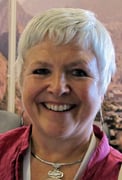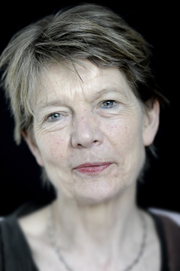Policy Bite: Gender and health – a major equity agenda
 español
español
Professor Amanda Howe, our new President–Elect, said in her speech
at the WONCA Council that she would “help with policy messages. In WONCA
…. we know what we want to say. I’d work on how we say it – getting
accurate clear briefing documents out, so you can adapt them for use in
your place”. This month she invites Prof Toine Lagro-Janssen to speak about a publication called "Gender and Health Knowledge Agenda".
A new publication from colleagues in the Netherlands came my way this month, and reminded me of why I got involved with WONCA in the 1990s. It emphasises some important areas which are common clinical challenges for family doctors - patients who are victims of physical and psychological abuse, mental health problems, and unexplained multiple symptoms – as well as general principles of lifestyle and health promotion, cardiovascular disease, drug treatments, diabetes, sexuality and domestic violence. I found section 2 a really good knowledge update, reminding me of the different epidemiologies and needs of men and women at different life stages. It will be a fantastic resource for members who need to get facts at their fingertips, as it also sets out the evidence, and gaps in the research.

The report was drawn to my attention by Professor Toine Lagro-Janssen (pictured), who was an academic colleague of our past President Prof Chris van Weel, and who has done exceptional scholarly work and advocacy throughout her career on issues of gender both in the workforce and in health. I asked Toine to comment on the report and its implications for our members internationally. She comments:
“T
his Gender and Knowledge Agenda has been drawn up on behalf of the Gender & Health alliance in collaboration with a large number of experts in the healthcare sector and academia and significant contribution from the GPs connected to Women’s Studies at the Department of Primary Care at Nijmegen.
By exploring the differences between men and women in health, illness and treatment more and more effectively we have the potential to improve quality of life and at the same time reduce waste and healthcare costs. A bio-psycho-social approach, as common in general practice, and personalized medicine will benefit from the attainments of gender-sensitive medicine. Data from gender-sensitive research confirm how important it is to keep pursuing equal health outcomes. Equal outcomes may require unequal treatments for women and men.”
WONCA has organised itself to examine and champion issues around gender and health - the WONCA Working Party on Women and Family Medicine (WWPWFM) has led on this, and the Organizational Equity Committee aims to turn our gaze inwards to how conscious we are about equity issues, including gender. We have many academic colleagues who will be interested in its conclusions about the necessary research priorities. We also have a Health Inequalities SIG, who will find this report very relevant from a patient perspective. We have linked the report as a resource on our website,
see publication in English
But for those of you who don’t have time to read it right now – I would give my take home message as being about ‘blind spots’. As generalists, we family doctors pride ourselves on being able to care for people of all ages and backgrounds with different health needs. Nevertheless, we are ourselves influenced by our own preferences, experiences, and socio-cultural contexts. This report is a timely reminder of some key clinical areas and their gendered prevalence and presentation. It should inform our clinical, academic and policymaking activities. Read and learn!
About Toine Lagro-Janssen
Toine Lagro-Janssen holds a PhD in medicine and is Professor of Women’s Studies Medicine, at the Radboud university medical centre, the Netherlands. Her key areas of research are: gender in medical education and professional development; intimate partner violence and sexual abuse; pelvic floor problems; reproductive health issues, especially home delivery; and female students/doctors careers and leadership. She led the knowledge centre for ‘Sex and Diversity in Medical Education’. She is the head of the Center for Sexual and Family Violence Nijmegen. She is a member of the Health Council of the Netherlands.
In 2007 she received the Royal Honour as Officer of the Order of Orange-Nassau, for profiling the role of women as patients and doctors, especially in an international perspective, Nijmegen and she received the University Education Prize with the teaching team for ‘Gender-Specific Medicine in the Medical Curriculum’, Radboud University Nijmegen. In 2013 she was awarded the NHG-Speld (The Dutch College of General Practitioners-pin), as a token of appreciation for her work for the GP care and for the Dutch college of General Practitioners.
She is a member of WONCA and the Working Party on Women in General Practice.